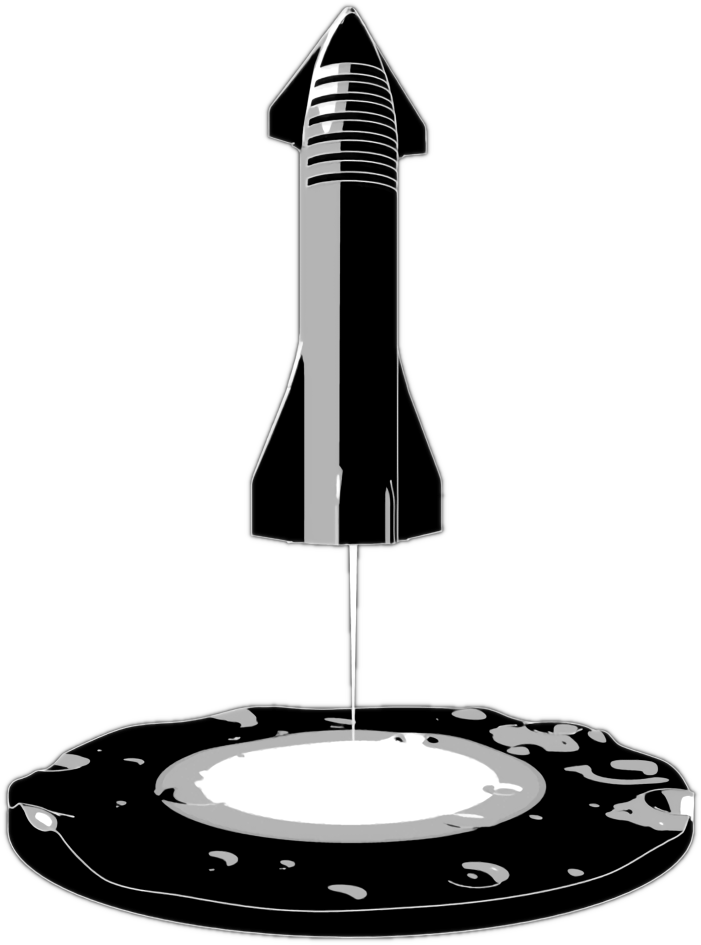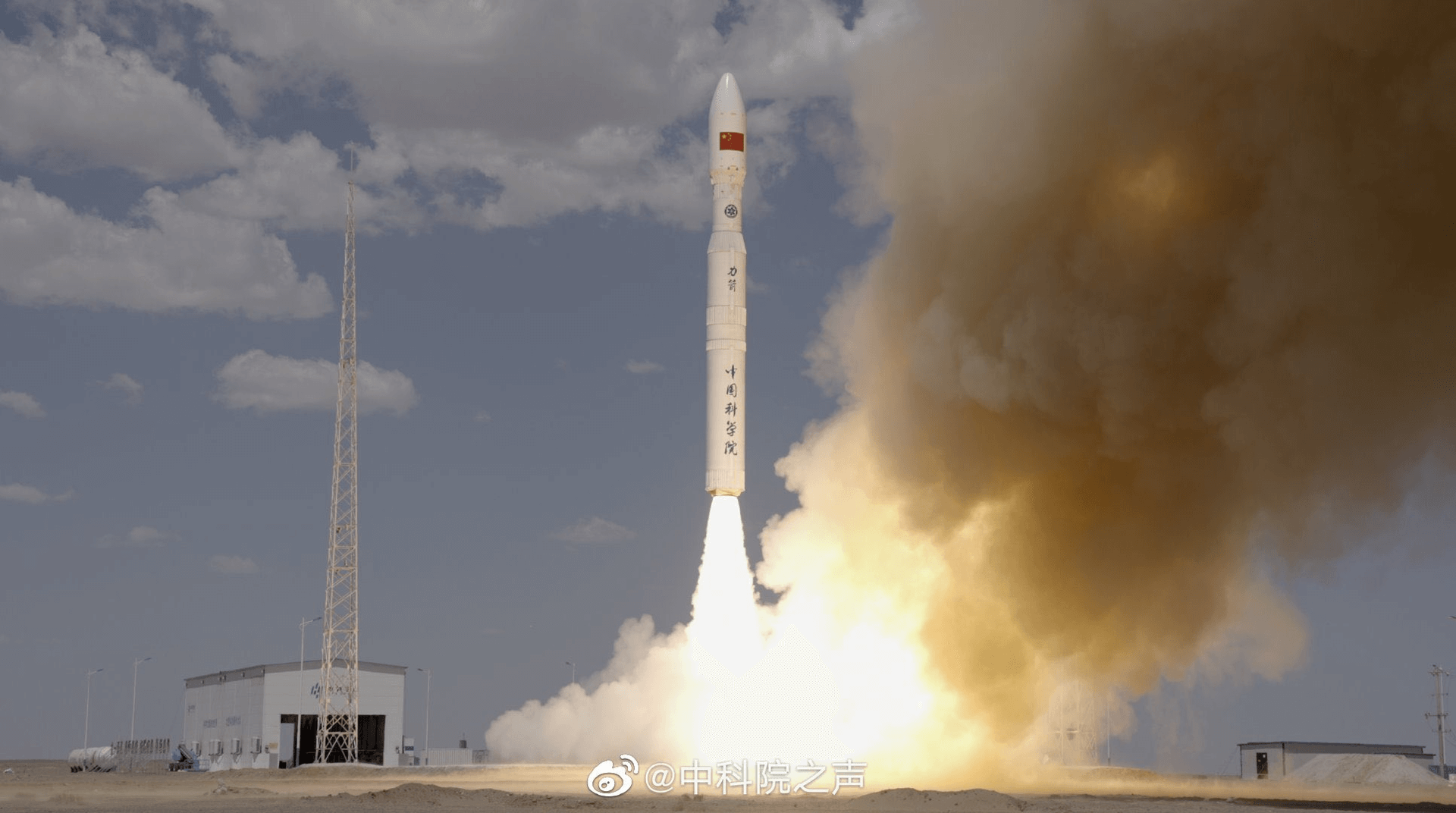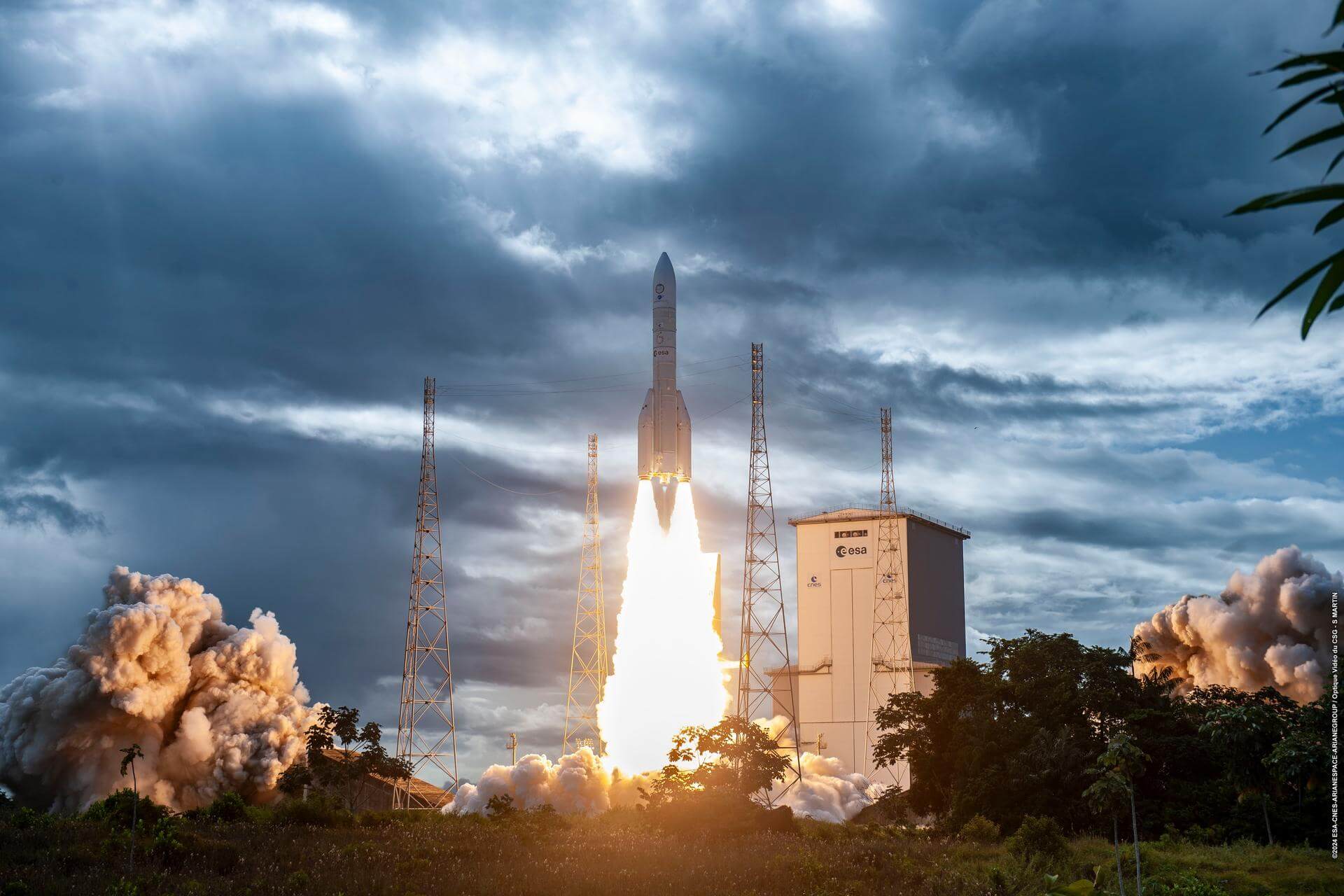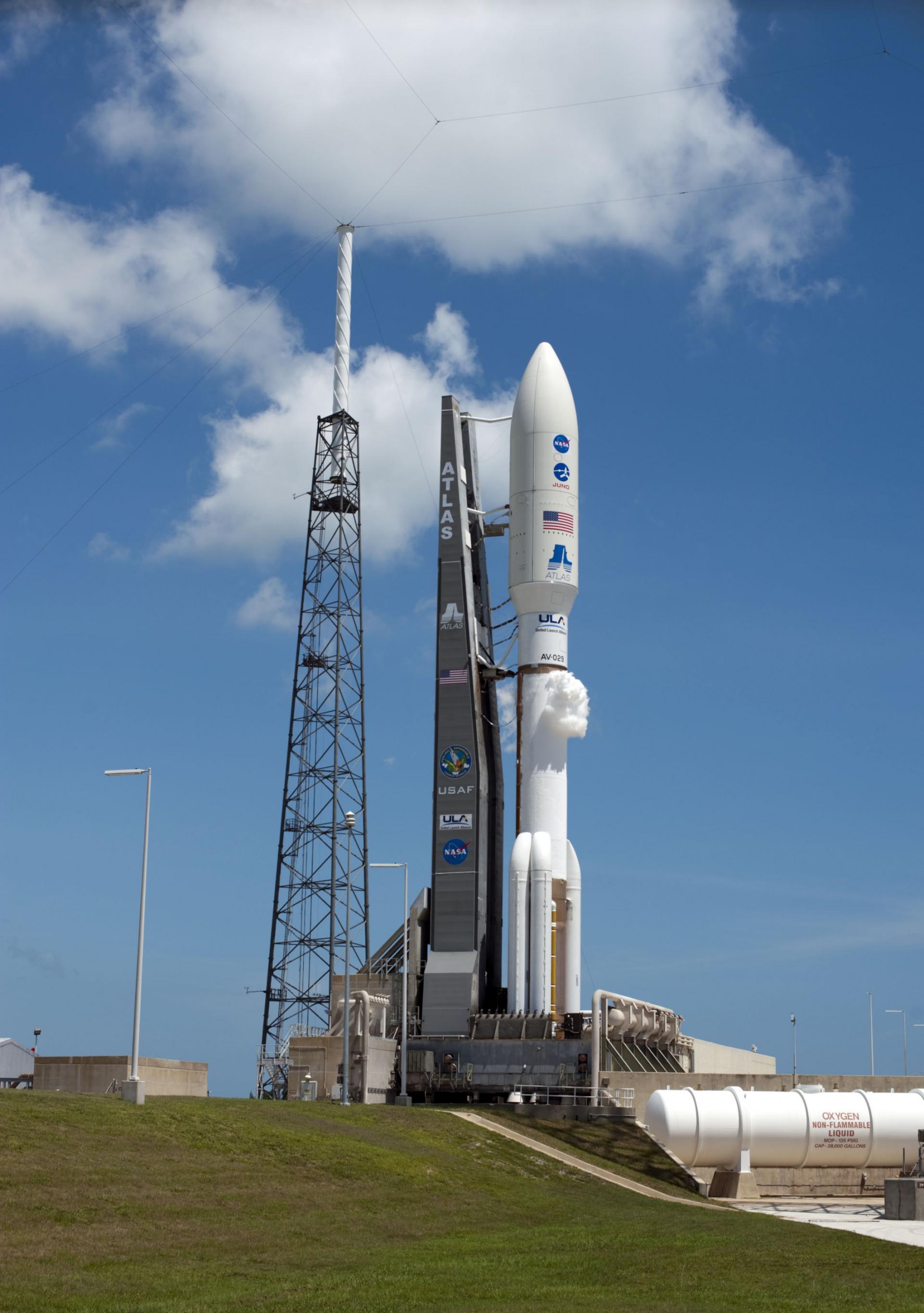· space brief · 5 min read
Space Brief 8 Nov 2024
Today's highlights include Russia's record-setting satellite launch, insights from NASA's AWE during Hurricane Helene, and confirmation of astronaut Suni Williams' good health aboard the ISS.

📄Top Stories
Russia successfully launched 53 satellites in a single mission, marking a significant achievement in their space endeavors. NASA’s Atmospheric Waves Experiment captured remarkable data on atmospheric gravity waves during Hurricane Helene. Meanwhile, NASA quelled rumors by confirming astronaut Suni Williams is in good health aboard the International Space Station.
📰Detailed Coverage
Russia Sends 53 Satellites to Orbit on Record-Breaking Launch
Russia achieved a major milestone with the successful launch of 53 satellites aboard a Soyuz-2.1b rocket from the Vostochny spaceport. This launch, carried out on Nov. 4, included a Russian-Chinese collaboration and rare partnerships with Zimbabwe and Iran, showcasing Russia’s ongoing efforts in strengthening international space ties. This operation set a new national record for Russia, though it falls short of SpaceX’s global record of 143 satellites in a single launch.
The payload comprised a diverse array of satellites, ranging from the Ionosfera-M duo for ionospheric monitoring to high-resolution imaging satellites from Iran. While Russia’s launch cadence has decreased over the past decade, this mission underscores its enduring capability and strategic significance in the global space race. Satellite tracking enthusiasts can monitor these new satellites’ trajectories via our web app for real-time updates and detailed orbital paths.
Read the full story: Space.com
NASA’s AWE Sheds Light on Hurricane Helene’s Atmospheric Impact
NASA’s Atmospheric Waves Experiment (AWE), mounted on the International Space Station, has provided new insights into atmospheric behavior during extreme weather events. As Hurricane Helene hit the Gulf Coast, AWE captured atmospheric gravity waves—concentric wave patterns resulting from the storm’s impact. These observations help bridge the understanding between terrestrial and space weather, pivotal for safeguarding satellites and communication infrastructures.
Launched in November 2023, AWE observes fluctuations in airglow in the mesosphere, revealing the influence of terrestrial weather on space conditions. This data offers scientists critical tools for analyzing how such disturbances can affect satellite operations. For enthusiasts and scientists alike, monitoring the interaction between Earth’s weather and space conditions is crucial, further facilitated by our web app’s satellite tracking features.
Read the full story: NASA Science
NASA Confirms Astronaut Suni Williams’ Health on ISS
NASA addressed rumors concerning astronaut Suni Williams’ health aboard the International Space Station. Despite media speculation based on a recent photo suggesting she appeared “gaunt,” NASA assured that Williams is in good health. As the commander of Expedition 72, Williams has been aboard the ISS since June, following an extended stay due to technical issues with the Boeing Starliner.
This situation highlights the various challenges and adaptations required during long-duration space missions. Ensuring astronauts’ health and well-being is a top priority, monitored closely by NASA’s medical teams. For those interested in the intricacies of human spaceflight, this serves as a testament to the resilience and meticulous planning involved in manned missions.
Read the full story: Space.com
Bind Russia to a New Arms Control Treaty to Ban Nuclear Weapons in Space
International discussions are evolving towards binding Russia in a new arms control treaty that aims at banning nuclear weapons in space. This initiative marks a significant step towards ensuring that the peaceful nature of space is maintained and protected from militarization.
The conversation surrounding this treaty reflects growing concerns about the potential for space to become a new frontier for warfare. As satellites are critical for global communications and navigation, ensuring space remains a domain of peace is essential for the safety and stability of these technologies. Tracking space debris and monitoring satellite health are vital aspects managed through advanced satellite tracking systems, such as those available in our web app.
Read the full story: SpaceNews
🛰️Satellite Spotlight
- Satellite Name: WESTPAC
- NORAD ID: 25398
- Launch Date: 1998-07-03
- Mission: WESTPAC is a mission jointly developed by several Asia-Pacific countries aimed at enhancing regional environmental monitoring and earth observation capabilities.
- Orbit: Inclination 98.9384°, Period 101.196 min, Eccentricity 0.0002374
- Operator: EOSAU
- Fun Fact: WESTPAC’s development involved collaboration between various stakeholders, showcasing an early example of international cooperation in space activities.
Current TLE Data: 1 25398U 98043E 24310.61357924 .00000134 00000-0 79830-4 0 99997 2 25398 98.9384 274.1466 0002374 96.3042 263.8406 14.22981882367235
Track this satellite in real-time on our web app: Track WESTPAC
🚀Upcoming Space Launches
November 9
-
China Aerospace Science and Technology Corporation Long March 2C:
- Unknown Payload from Jiuquan Satellite Launch Center, People’s Republic of China (03:29 UTC)
-
SpaceX Falcon 9 Block 5:
- Starlink Group 9-10 from Vandenberg SFB, CA, USA (06:14 UTC) A batch of satellites for the Starlink mega-constellation - SpaceX’s project for space-based Internet communication system.
November 10
- SpaceX Falcon 9 Block 5:
- Starlink Group 6-69 from Cape Canaveral SFS, FL, USA (21:28 UTC) A batch of satellites for the Starlink mega-constellation - SpaceX’s project for space-based Internet communication system.
November 11
-
CAS Space Kinetica 1:
- Unknown Payload from Jiuquan Satellite Launch Center, People’s Republic of China (03:51 UTC)
-
SpaceX Falcon 9 Block 5:
- Koreasat 6A from Kennedy Space Center, FL, USA (17:07 UTC) The Koreasat 6A spacecraft, built by Thales Alenia Space, will have 20 transponders for fixed satellite services and six for TV broadcasting to replace the Koreasat 6 launched in 2010. It will be designed to operate for at least 15 years.
November 12
- SpaceX Falcon 9 Block 5:
- Starlink Group 9-11 from Vandenberg SFB, CA, USA (05:07 UTC) A batch of satellites for the Starlink mega-constellation - SpaceX’s project for space-based Internet communication system.
November 13
-
SpaceX Falcon 9 Block 5:
- Starlink Group 6-68 from Cape Canaveral SFS, FL, USA (11:00 UTC) A batch of satellites for the Starlink mega-constellation - SpaceX’s project for space-based Internet communication system.
-
China Aerospace Science and Technology Corporation Long March 4C:
- Unknown Payload from Taiyuan Satellite Launch Center, People’s Republic of China (22:34 UTC)
November 18
- SpaceX Starship:
- Integrated Flight Test 6 from SpaceX Starbase, TX, USA (22:00 UTC) Sixth test flight of the two-stage Starship launch vehicle.
Note: Launch dates and times are subject to change due to technical or weather considerations.

Maurice Stellarski





